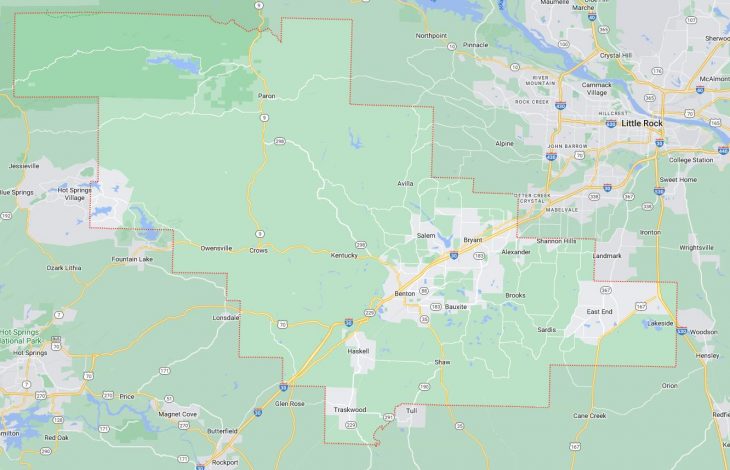Cities and Towns in Saline County, Arkansas
Founded on November 2, 1835, Saline County is one of 75 counties in the state of Arkansas. Historically, Saline County was formed from Independence and Pulaski. The city of Benton is the county seat. With FIPS code of 125, Saline County has a population of 125,233 and area of 730.46 square miles (1,892 km²).
List of all cities in Saline County, AR alphabetically
| City/Town | Postal Code | Area Code |
| Alexander, AR | 72002 | 501 |
| Bauxite, AR | 72011 | 501 |
| Benton, AR | 72015 | 501 |
| 72018 | 501 | |
| 72019 | 501 | |
| 72022 | 501 | |
| 72158 | 501 | |
| Bryant, AR | 72015 | 501 |
| 72019 | 501 | |
| 72022 | 501 | |
| 72089 | 501 | |
| East End, AR | 72065 | 501 |
| Fenter, AR | 72167 | 501 |
| Haskell, AR | 72015 | 501 |
| Hensley, AR | 72065 | 501 |
| Mabelvale, AR | 72103 | 501 |
| Paron, AR | 72122 | 501 |
| Royal Oak, AR | 72103 | 501 |
| Shannon Hills, AR | 72103 | 501 |
| Traskwood, AR | 72167 | 501 |
| Tull, AR | 72015 | 501 |














































